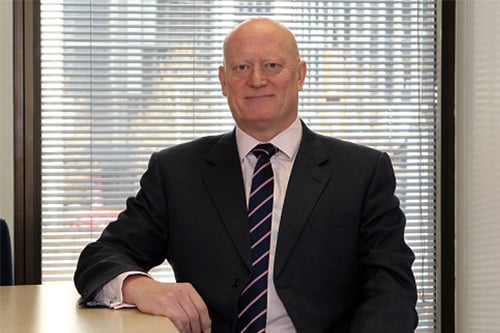

Whenever a merger or acquisition takes place, a tremendous amount of time and effort is poured into ensuring that those critical first few days and weeks run as smoothly as possible. Since the outbreak of the COVID-19 pandemic, this task has become more difficult, and perhaps more essential, than ever as crucial decisions and onboarding tasks are carried out in increasingly innovative ways.
For acquisitions finalised during this lockdown period, such as those carried out by Green Insurance Group, the south eastern hub business for Global Risk Partners (GRP), the vast majority of the work involved took place prior to the lockdown, noted Mike Bruce (pictured above), the new chief executive of GRP. The brokerage had a strong pipeline of businesses in various stages of acquisition discussions before the lockdown, many of which have faced interruptions from the pandemic.
“Like us, all the businesses that we’ve been looking at have, quite rightly, been focused on looking after their customers and staff during this period. But also, like us, everyone appears to have now reached a rhythm of working so we’re back full throttle,” he said. “We have a number of deals in diligence at the moment and more that we expect to get into. So, over the coming months, whatever happens COVID-19-wise, you will see a steady stream of acquisitions completed with GRP.”
The businesses that GRP is currently speaking with tend to be those with which the firm has had a positive and communicative relationship for many weeks, months and sometimes years, Bruce said. The value of these long-standing relationships has been highlighted during the lockdown as the essential factor of cultural fit is a box that has already been ticked.
Onboarding has been more a challenge, he noted, but much of what is done around the harmonisation of processes and procedures and ways of working, can be done remotely in this day and age. He highlighted an example of a business acquired last year which had to move its IT platform on the first of April. Even with all staff working from home this move to the new system was done successfully via remote training, and this highlights the capacity of individuals and organisations to adapt to changing environments.
“These things can be done,” he said. “Certainly, prior to this lockdown, I really had very limited use for video conferencing, except perhaps when talking to people overseas, but it has become a part of everyone’s working life very quickly. So, going forward, I’m sure we’ll all be doing things in a slightly different way.”
One of the key takeaways for Bruce and GRP from the pandemic, and one that he is certain other businesses will also be experiencing, is that communication is absolutely key to long-term success. In the early days of the pandemic, crisis-talks were held every day to ensure the transition of staff across the business to a new working from home set-up and since then there have been efforts made to ensure employees are kept firmly up to date with the latest business developments.
“All of our businesses have daily calls to monitor what is happening with customers, etc., and in a funny sort of way, because there are less distractions in everyone’s lives, people have got even more of a focus on the key parts of their jobs. And this can bring its own challenges because people do need a bit of human interaction,” he said.
“Doing [your day-to-day work] by Zoom is better than over the phone but it’s still not quite the same as that sort of face to face interaction. And we are making sure to stay on top of any potential health and welfare issues with our staff because there are certainly some people who will be finding working from home more stressful than others.”
With its development of hub businesses throughout the regions of the UK, GRP has always been focused on showcasing the role of an insurance broker in a local community, Bruce noted. There still is a place for these local relationships and, if anything, through utilising technology and keeping abreast of the challenges facing their clients, many brokers have perhaps had more face-time with their clients than they would have before the lockdown struck.
“I can see that being something we carry forward,” he said. “We always look at working in an effective and efficient manner, but I believe you can still do that and retain a local presence which we believe is what customers are looking for. Especially in these more stressful times, having a local friendly face in the community is more reassuring than ever to our customers.”
